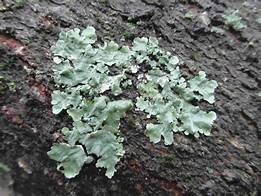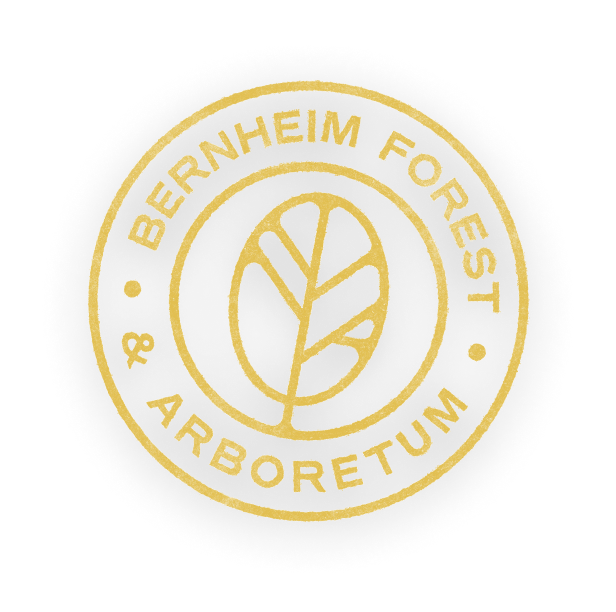By Bernheim
By Volunteer Naturalist, Dick Dennis
 Do lichens harm trees? Do lichens benefit trees? What place in nature’s ecology do lichens occupy? I recently had a visitor ask me if lichens kill trees. The answer is “no.” Lichens require sunlight to grow, and a dead or declining tree lacks leaves to block the sun, so lichens thrive. Lichens do, in fact, benefit trees, although only indirectly, as described below.
Do lichens harm trees? Do lichens benefit trees? What place in nature’s ecology do lichens occupy? I recently had a visitor ask me if lichens kill trees. The answer is “no.” Lichens require sunlight to grow, and a dead or declining tree lacks leaves to block the sun, so lichens thrive. Lichens do, in fact, benefit trees, although only indirectly, as described below.
What is a lichen? Scientists don’t consider it either plant or animal – a lichen is a combination of two organisms working together. A good way to remember it is the old joke, “An algae took a ‘likin’ to a fungi.” Lichens “fix” or absorb the element, nitrogen from the air. Nitrogen is essential to tree and plant growth. Rain leaches the nitrogen from the lichens and deposits it in the soil, where trees and other plants can tap into it.
Lichens use trees as structural perches. Lichens photosynthesize by themselves, so take no nutrients or water from the tree itself. Lichens are reliable indicators of air quality – if lichens are moist and colorful, the air is good. Lichens provide food, cover, and nesting materials for birds, mammals, and insects. Humans use lichens in medicines such as antibiotics, anti-cancer drugs, and antioxidants.
During a recent training exercise for the Volunteer Naturalist program, I recently shared some information that I had heard from non-professionals . Or, perhaps my memory is flawed and I mis-remembered what I had heard. Wren Smith, the leader of the Volunteer Naturalist program, in her non-invasive way, gently challenged me on some of that information, prompting me to do additional research. As my dad often said “Listen to everyone, and then check it out. Make up your own mind.”
Sources, USDA Department of Agriculture. Division of Forestry; Penn State Agriculture Extension Service; Sciencing, 2017, by Ethan Shaw.

